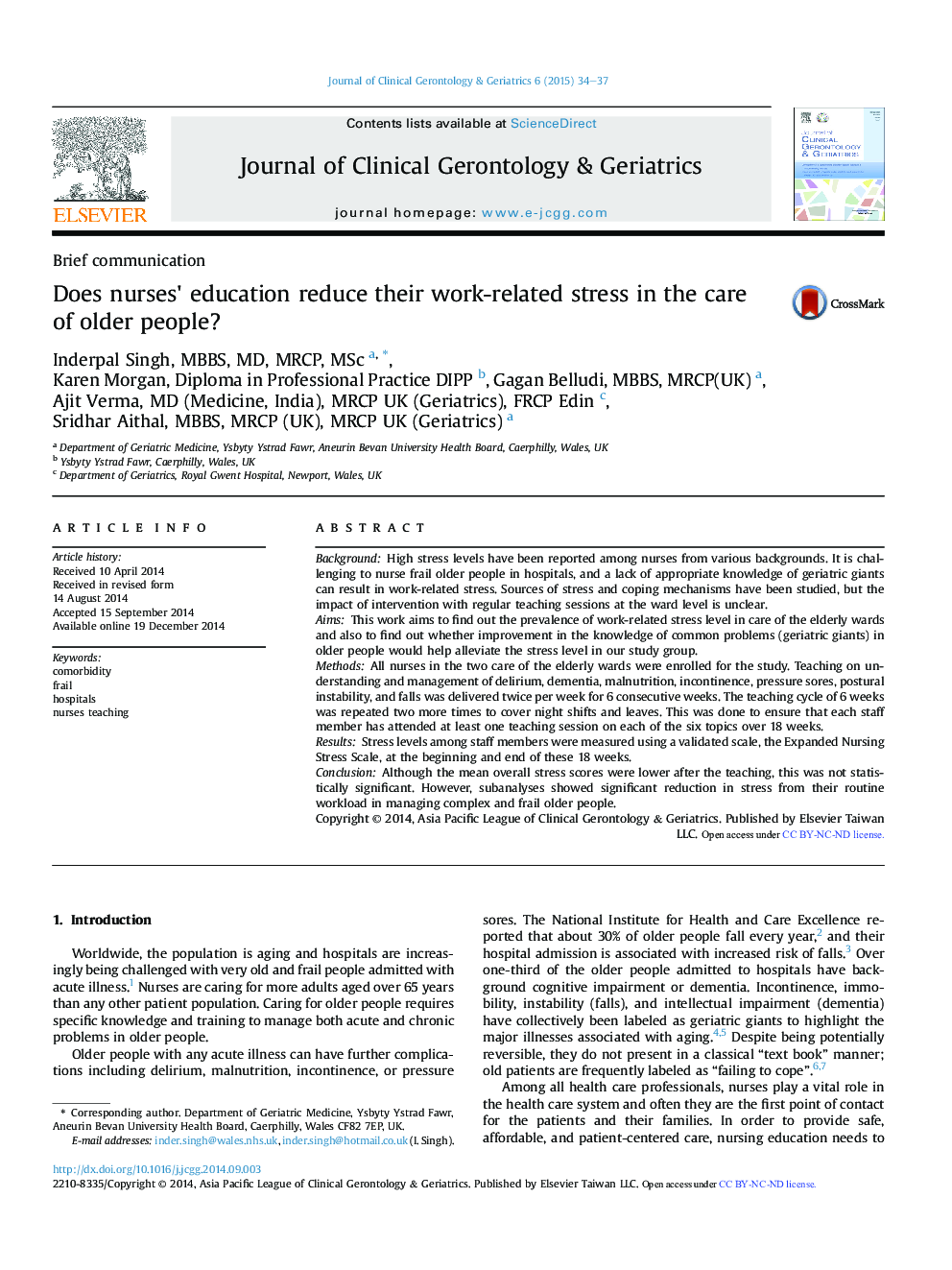| Article ID | Journal | Published Year | Pages | File Type |
|---|---|---|---|---|
| 3325732 | Journal of Clinical Gerontology and Geriatrics | 2015 | 4 Pages |
BackgroundHigh stress levels have been reported among nurses from various backgrounds. It is challenging to nurse frail older people in hospitals, and a lack of appropriate knowledge of geriatric giants can result in work-related stress. Sources of stress and coping mechanisms have been studied, but the impact of intervention with regular teaching sessions at the ward level is unclear.AimsThis work aims to find out the prevalence of work-related stress level in care of the elderly wards and also to find out whether improvement in the knowledge of common problems (geriatric giants) in older people would help alleviate the stress level in our study group.MethodsAll nurses in the two care of the elderly wards were enrolled for the study. Teaching on understanding and management of delirium, dementia, malnutrition, incontinence, pressure sores, postural instability, and falls was delivered twice per week for 6 consecutive weeks. The teaching cycle of 6 weeks was repeated two more times to cover night shifts and leaves. This was done to ensure that each staff member has attended at least one teaching session on each of the six topics over 18 weeks.ResultsStress levels among staff members were measured using a validated scale, the Expanded Nursing Stress Scale, at the beginning and end of these 18 weeks.ConclusionAlthough the mean overall stress scores were lower after the teaching, this was not statistically significant. However, subanalyses showed significant reduction in stress from their routine workload in managing complex and frail older people.
